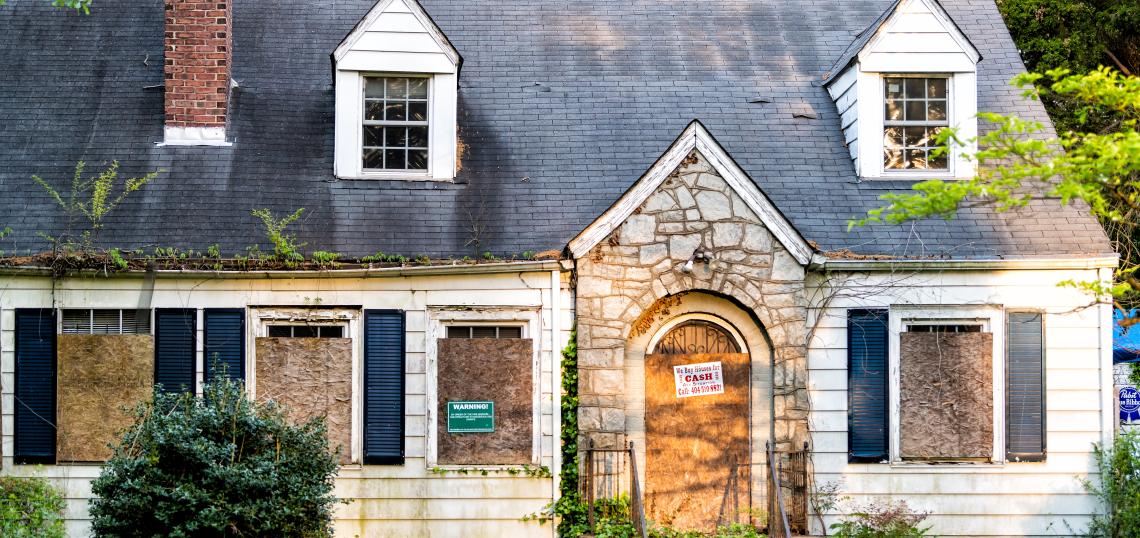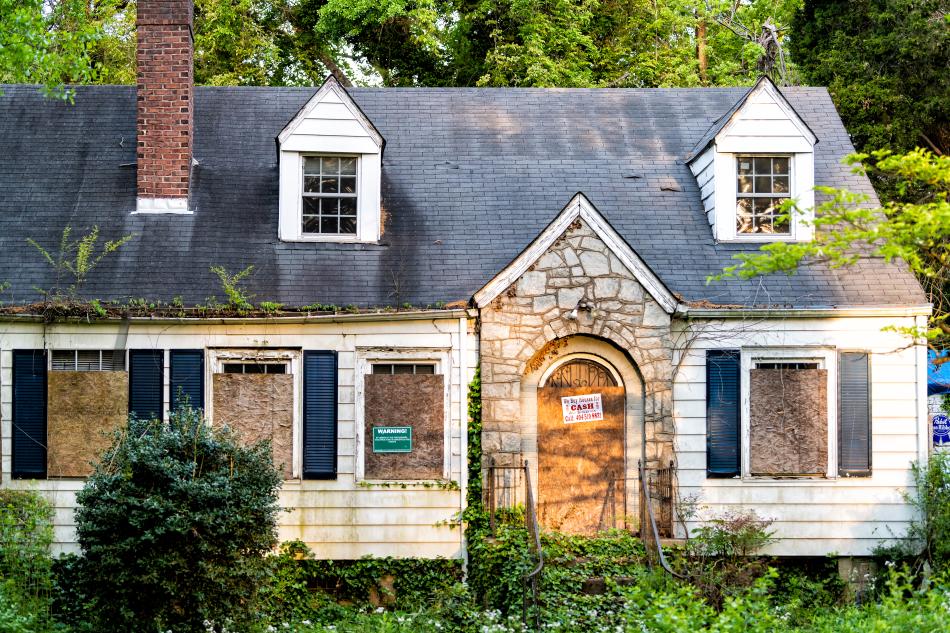A month after it was introduced, “Blight Tax” legislation that aims to aggressively crack down on absentee landlords—including corporations—and tidy up neglected properties throughout Atlanta is now officially law.
Whether Atlantans will use the new tool, and how effective code enforcement will be, remains to be seen.
The legislation passed the Atlanta City Council 11-1 during its Monday meeting. It allows city officials to tax blighted property owners up to 25 times higher than current millage rates, in hopes of incentivizing them to revitalize properties or sell. Antonio Lewis, District 12 city councilmember, was the lone naysayer, the AJC reports.
A city spokesperson tells Urbanize Atlanta the law officially went into effect when Mayor Andre Dickens signed the legislation this week.
To report concerns with blighted properties, Atlanta residents are asked to call 311, the city’s 24-7 system for addressing non-emergency situations, per the spokesperson.
The bill was introduced by Dickens and District 3 city councilmember Byron Amos in July as a means of addressing vacant, unkept houses and larger sites that further disinvestment in Atlanta neighborhoods.
Amos, whose district covers sections of Midtown, the Marietta Street Corridor, and Westside neighborhoods such as Vine City and English Avenue, said last month the Blight Tax will give the city stronger leverage in persuading owners to clean up or sell negligent properties, instead of waiting years to cash in and dragging communities down.
The legislation’s backers are quick to point out the program will not apply to any property that’s occupied, regardless of its condition, to avoid displacing residents.
Any blighted property subjected to higher taxes that gets remediated and returned to a productive use can be eligible for a discounted tax rate once the work is finished, according to the ordinance.
Large-scale properties such as former industrial sites that significantly impact neighborhoods would be special cases. Prior to redevelopment, those property owners would first have to agree to a development plan that addresses specific neighborhood objectives—such as connectivity, transportation, and public amenities—that benefit broader communities.
The Blight Tax ordinance authorizes city officials to take advantage of a program approved by Georgia voters geared toward persuading property owners to redevelop or remediate blighted real estate. Similar measures have been implemented around Georgia and other states as a “surgical, judicial enforcement tool” applied to properties that could have otherwise sat vacant for decades, according to the legislation’s authors.
Will the law devolve into a slap-on-the-wrist measure that quietly fades into oblivion? Or could it finally turn the tide in places saddled with blight for too long? What say you, Atlanta?
...
Follow us on social media:
Twitter / Facebook/and now: Instagram
• Reader poll: How gentrified is Atlanta right now? (Urbanize Atlanta)







